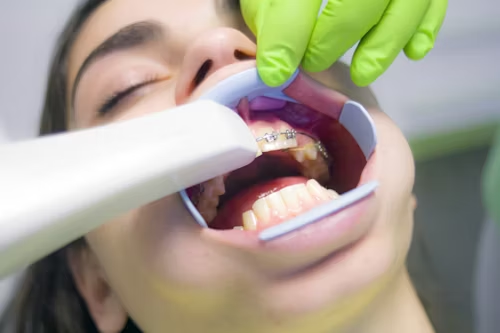Sedation
Sedation Dentistry at Dento Smile
Feeling anxious about visiting the dentist is more common than you might think, with dental anxiety ranging from mild to severe enough to prevent necessary treatment. It affects people of all ages.
Fortunately, sedation dentistry can help ease your mind and reduce nervousness. With our in-house sleep dentistry services, you can feel relaxed or even like you’re napping, depending on the sedative strength you choose.
Our dentists and licensed anesthetist ensure a safe, calm, and comfortable environment for your care.
Fortunately, sedation dentistry can help ease your mind and reduce nervousness. With our in-house sleep dentistry services, you can feel relaxed or even like you’re napping, depending on the sedative strength you choose.
Our dentists and licensed anesthetist ensure a safe, calm, and comfortable environment for your care.

Types of Dental Sedation
- Nitrous oxide, also known as "Happy Gas," is a gentle and fast-acting inhalation sedation. A soft nosepiece is placed over your nose, allowing you to breathe in a mix of pure oxygen and nitrous oxide, creating a calm and sometimes tingling sensation throughout your body. You’ll remain fully conscious and able to communicate with our team, experiencing less anxiety and discomfort. Once your treatment is complete, the effects of the nitrous oxide quickly wear off, so you can drive home on your own.
- Intravenous Sedation: Also known as “twilight sedation,” IV sedatives are administered by a licensed anesthetist. While you’ll technically be conscious, most people feel as if they’re dreaming or are unaware of their surroundings. This fast-acting and precise sedative provides maximum comfort for longer or more complex procedures. Since the effects take a while to wear off, you’ll need someone to accompany you home afterward, as drowsiness can last for a few hours.
Why Consider Sedation?
Some of the most common reasons we suggest dental sedation at are for situations involving:
- Lengthier or more complex appointments
- Situations where a patient is unable to sit for longer periods of time
- Hypersensitive teeth
- Extensive dental health needs due to delaying care
- Past negative experiences at the dentist's office
- Mild to severe dental anxiety/phobia
- Heightened gag reflex
If you’re unsure about requesting sedation during your treatment or you need more information, our team will be happy to discuss any questions that you have. Most people find that opting for a sedative helps them to access the care they need; you may have wished it was something that you did sooner!
* All surgical or invasive procedures come with risks. It’s advisable to get a second opinion from a qualified health professional before moving forward.